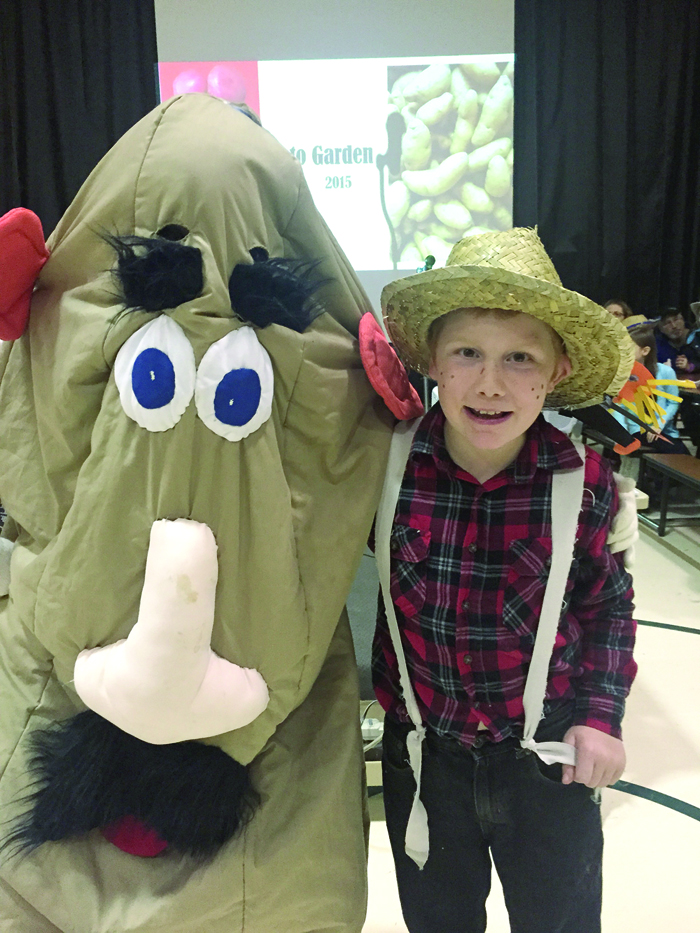At the West Homer Elementary Fourth Annual Potato Fest last week, students proved that science can be both fun and tasty. It was a busy afternoon for members of the student council, who were assigned to serve food to the 250 third-through-sixth-grade students and their families who packed the school gym. On the menu were broccoli, bacon, onions and sour cream to plop on top of baked potatoes grown right in the school’s garden.
The celebration was the result of a grant from the Homer Soil and Water Conservation District: the People’s Garden Grant, which gives students an opportunity to get their hands in the dirt and learn about the scientific method at the same time.
Each spring for the past four years, third- and fourth-graders have used the grant money to plant beds of potatoes in front of the school and conduct experiments on their growth. This year, they planted four beds with cow manure and two with worm castings. Their goal: to find out which substance made the better manure.
Fourth-graders Talli Dalke, Camden Wise, Sydney Shelby, Troy Neese, Hadley Glidden and Audrey Dabney presented the classrooms’ findings to the hungry audience Oct. 15 in a Powerpoint with hand-drawn graphs.
The beds fertilized with cow manure had produced both a greater number and greater total weight of potatoes than the beds with worm castings. But the young scientists pointed out that that doesn’t necessarily mean the manure was a better fertilizer — it seemed not all the potatoes had gotten a chance to finish growing, and there were more bovine beds than ones with worm castings.
The students said that next year, they plan to use equal numbers of each kind of bed for a more accurate comparison. They also want to compare worm compost with fish compost, and say they’ll take soil samples at the beginning of the experiment to make sure nitrogen levels are equal in all the beds to start.
“I was really proud of the students and their observation of the results of the data,” said fourth-grade teacher Shellie Worsfold.
But the event wasn’t just about numbers.
Students got creative with the potato theme, dressing up as farmers and farm animals. One girl stuck cotton balls to her clothes to become a fuzzy lamb. Fourth-grade teacher Robyn Walls climbed inside a giant potato costume and stayed silent while inquisitive students attempted to guess her identity. The Sign Language Club taught the audience a song called “Colors of the Rainbow.”
“I love that (the Potato Fest) brings all members of the community to come and join an informal meal with their family members,” said Worsfold. She thanked student and parent volunteers for their help in preparing the potatoes.
She also extended an invitation to any community members interested in getting involved with the garden, saying interest and assistance is always appreciated.
Next year, said Worsfold, they’re thinking about donating their potatoes to the food pantry instead of eating them –— a healthy helping of science education with a side of compassion.
Annie Rosenthal can be reached at annie.rosenthal@homernews.com.


